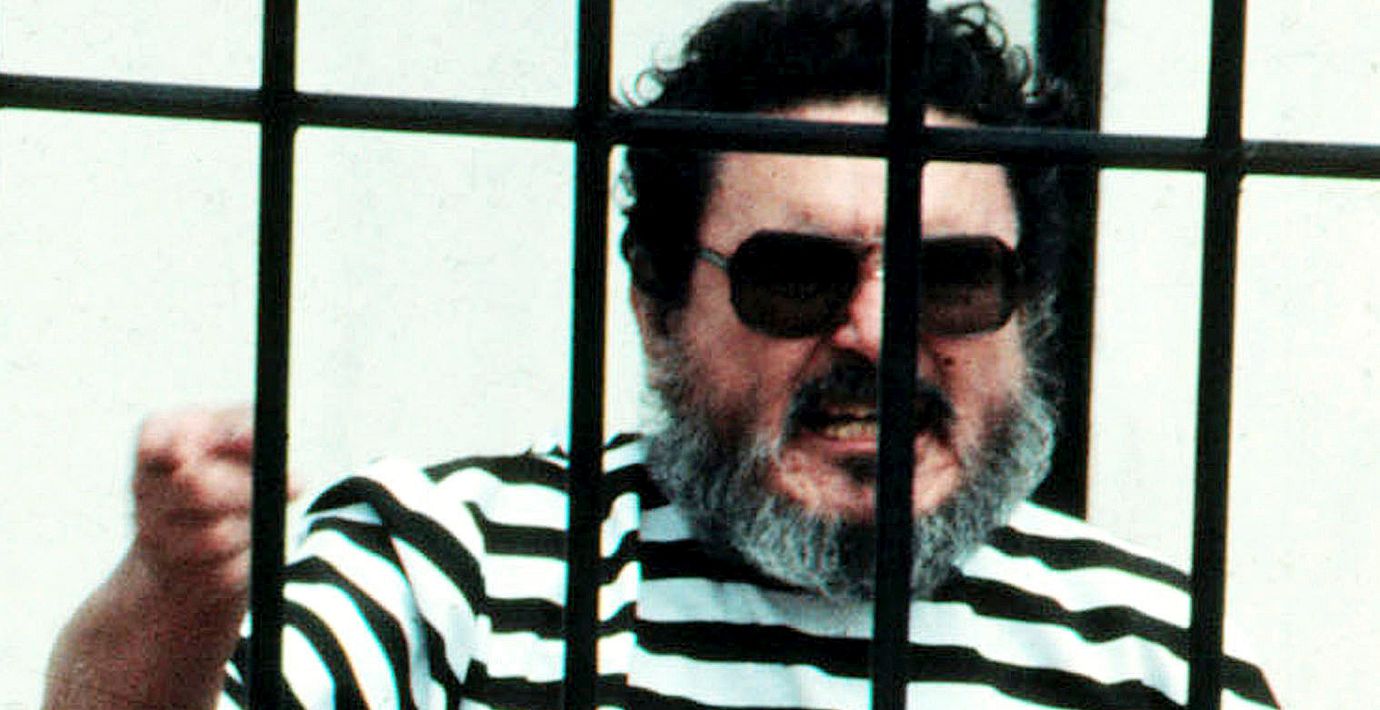
Peruansk gerillaledare död i fängelset
Abimael Guzmán, grundare av den peruanska maoistgerillan Sendero Luminosos (Lysande stigen), har dött i fängelset. Det uppger regeringen på Twitter.
”Jag informerades i morse om att herr terrorist Abimael Guzmán har dött till följd av en allmäninfektion”, skriver försvarsminister Walter Ayala.
86-årige Guzmán avtjänade sedan 1992 flera livstidsstraff för bland annat terrorism och mord.
Runt 70 000 personer dödades till följd av strider mellan gerillan och peruanska militären under 1980- och 90-talet, skriver New York Times.
bakgrund
Abimael Guzmán
Wikipedia (en)
Manuel Rubén Abimael Guzmán Reinoso (American Spanish: [maˈnwel ruˈβen aβimaˈel ɡusˈman rejˈnoso]; 3 December 1934 − 11 September 2021), also known by his nom de guerre Chairman Gonzalo (Spanish: Presidente Gonzalo), was a Peruvian Maoist leader. He founded the Communist Party of Peru – Shining Path in 1969 and led a people’s war against the Peruvian government until his capture by authorities in September 1992. He was subsequently sentenced to life imprisonment for terrorism and treason.
In the 1960s and 1970s, Guzmán was a professor of philosophy active in left-wing politics and strongly influenced by Marxism and Mao Zedong Thought. He developed an ideology of armed struggle stressing the empowerment of the indigenous people. He went underground in the mid-1970s to become the leader of the Communist Party of Peru, which began what it called "the armed struggle" or "people's war" on 17 May 1980.
bakgrund
Lysande stigen
Wikipedia (en)
The Communist Party of Peru – Shining Path (Spanish: Partido Comunista del Perú – Sendero Luminoso, PCP-SL), commonly shortened to the Shining Path (Sendero Luminoso), is a revolutionary communist party and guerrilla group in Peru following Marxism–Leninism–Maoism and Gonzalo Thought.
When it first launched during the internal conflict in Peru in 1980, its goal was to overthrow the state by guerrilla warfare and replace it with a New Democracy. The PCP-SL believed that by establishing a dictatorship of the proletariat, inducing a cultural revolution, and eventually sparking a world revolution, they could arrive at full communism. Their representatives stated that the then-existing socialist countries were revisionist, and the Shining Path was the vanguard of the world communist movement. The PCP-SL's ideology and tactics have influenced other Maoist insurgent groups such as the Communist Party of Nepal (Maoist Centre) and other Revolutionary Internationalist Movement-affiliated organizations. The Peruvian guerrillas were peculiar in that they had a high proportion of women; 50% of the combatants and 40% of the commanders were women.The Shining Path has been widely condemned for its brutality, including violence deployed against peasants, trade union organizers, competing Marxist groups, elected officials and the general public. The Shining Path is regarded as a terrorist organization by Peru, Japan, the United States, the European Union, and Canada, which consequently prohibit funding and other financial support for the group.Since the captures of Shining Path founder Abimael Guzmán in 1992 and his successor Comrade Artemio in 2012, the Shining Path has declined in activity. Only one remaining faction of the Shining Path, the Militarized Communist Party of Peru (MPCP), exists in the Valle de los Ríos Apurímac, Ene y Mantaro (VRAEM) region of Peru, and it has split from Shining Path in order to maintain support of peasants previously persecuted by the Shining Path.
Callao, Peru
Omni är politiskt obundna och oberoende. Vi strävar efter att ge fler perspektiv på nyheterna. Har du frågor eller synpunkter kring vår rapportering? Kontakta redaktionen